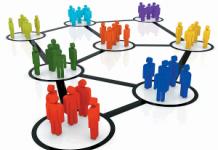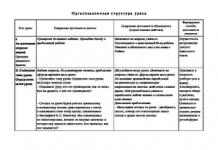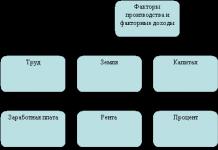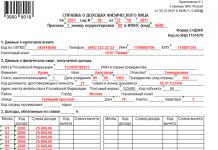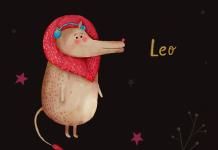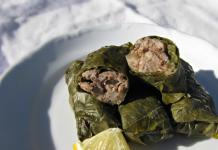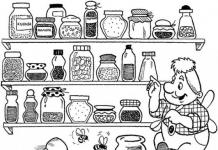Psychosomatics Legs
The psychosomatics of diseases associated with the legs is a broad topic, since each “part of the leg” is symbolically associated with a particular topic.
Psychosomatics of Sciatica (damage to the sciatic nerve)
The theme of lack or coercion of sex. It might not seem obvious, but try researching this if your attacks of pain are not chronic, but occur suddenly.
In practice, I observed two cases of severe pain after issues related to sex were resolved.
In the first case, the woman for a long time was dissatisfied with her sexual relationship with her husband. And, finally, they had a sincere conversation on this topic, in which she allowed herself to express her dissatisfaction, and also shared her vision of what kind of sex could completely satisfy her.
The next day the pain began to be so severe that she could not walk.
Since diseases associated with nerves occur after the conflict is resolved (), it is logical that sciatica began already when the woman exhaled, that is, the main experiences were resolved and the recovery stage began.
In the second case, a man developed an attack of sciatica after he was reunited with his wife after a long separation.
These two cases show that the attacks appeared AFTER the situation was resolved - insufficient quantity (and quality) of sex.
However, there may also be the opposite option - there is too much sex, too much coercion, and this does not suit one of the spouses.
For example, a man loves a woman, in her opinion, excessively, and when for some reason he leaves her for a long time, the woman sighs calmly, and here she is - the recovery stage - an attack of sciatica.
The topic of coercion and violence (not necessarily sexual) may be completely unconscious, but, nevertheless, even in an implicit form, it can lead to sciatica.
For example, if a person wants to move in a certain direction, but is not allowed (or, more correctly, his program does not allow him to move), the sciatic nerve can be damaged.
The biological logic of loading such a program into the sciatic nerve is easy to verify. Stand up and imagine that you want to move your leg, but you bump into something. Keep track of which leg muscles will be used. Most likely those along which the sciatic nerve “runs”.
Another example. A person wants to make some kind of breakthrough in his work, in his dream, and encounters a lot of obstacles. If he will still pass through this resistance, then on the most joyful note of victory, sciatica may occur (as we remember above, in in an acute case, sciatica is a recovery phase after the end of the conflict).
Psychosomatics Hip dysplasia (congenital hip dislocation)
There is sex again and/or the theme of coercion or traffic stop is again.
I know a mother who had a similar problem with two of her children. Questions sexual relations, their correctness/incorrectness, took first place with my mother.

Psychosomatics Knees
In practice, I observed conflicts that led to knee damage ( arthritis in one case, in the second - already chronic arthrosis (chronic disease means that experiences leading to illness occur constantly).
These conflicts were associated with sports defeats. This sport was unusual. Women competed with their men to see who could make a joke or argue with whom.
After the “match” ended and both sides calmed down, the women’s knees began to hurt.
Cartilage and bone tissue are also very often affected in situations of deep self-depreciation (article). Moreover, pain begins precisely when a person gives himself a high rating (even if this does not happen for a very long time).
For example, a woman has been overweight for a long time. Having taken charge of herself, the woman returns to her former forms. A slender body delights her husband, and the woman, who has long worried that she is unworthy and ugly, calms down.
The next day the woman experiences severe pain in her knee. Doctors diagnose Baker's cyst.
Our task was to determine the conflict that led to the disease. In order for the painful phenomena not to recur, it was also necessary that the woman not drive herself back into a state of extremely low self-esteem.
Psychosomatics Ankles
If the ankle is affected, the question of how much the person wants to move can be considered. direction where it is taking him.
Also, ankle problems happen if a person trying to "sit on two chairs“, for example, he is working on two projects, and not everything works out for him.
I know of one case of a broken ankle, just when the person was working on two large projects. The problem was also that the fracture did not want to heal. The fact is that non-union of fractures occurs if a person worries that the fracture occurred at the very wrong time.
The chest is the part of the body between the shoulders and abdomen that contains the heart and lungs. The description below applies to chest PAIN only.
Emotional blockage
In metaphysics, the breast represents the family. Chest pain may indicate that a person has experienced pain due to an unsatisfied desire to cling to the chest of his father or mother; it can also mean that this person does not allow someone to press against his chest. It is possible that he swells up, sticks out his chest, trying to seem necessary and important in the family. In addition, any pain in the chest indicates that a person feels guilty - before himself or before someone else. He may blame himself or someone else for not caring enough about some other member of his family.
Mental block
Your body tells you that you must love yourself and give yourself the right to be yourself, that is, accept all your shortcomings and weaknesses. Don't make your happiness dependent on others: don't think that you can love yourself only if others love you.
Breasts are the parts of the body in which the mammary glands are located. Some of the most common breast related conditions include: PAIN, HARDENING, MASTITIS, MASTOSIS, CYST, TUMOR and CANCER.
Emotional blockage
The breast is directly related to the manifestations of the maternal instinct towards children, family, partner or the whole world in general. Breast problems, in both women and men, indicate that a person is trying his best to feed or protect those towards whom he shows maternal instinct. Showing maternal instinct means caring for another person the way a mother takes care of her child. Breast problems can occur in those who force themselves to take care of someone, to be a good mother or father. It is also possible that a person tries his best for those he loves and forgets about his own needs. At the same time, he unconsciously gets angry at the people he cares about, since he does not have time to take care of himself. As a rule, if such a person cares about someone, he does it harshly and demandingly.
Breast diseases may also indicate that a person places too stringent demands on himself or that his self-care borders on mania. In right-handed people, the right breast is associated with the spouse, family or other loved ones, and the left breast is associated with the child (or inner child). For left-handed people the opposite is true.
If a woman has a breast-related problem that is purely aesthetic, it means she is overly concerned about how she looks as a mother. She must give herself permission to be an imperfect mother, since we are all imperfect.
Mental block
The problem associated with motherhood or the maternal instinct suggests that you need to forgive your mother and yourself for your attitude towards her. If the problem is related to your maternal instinct, then it can be concluded that you somehow had to suffer from the manifestation of your mother's maternal instinct. Instead of forcing or feeling sorry for yourself, you need to understand that your mission on Earth is not just to protect and feed everyone you love.
If these people ask you for help and you are able to help them without going beyond your capabilities, that is, without losing self-respect, do it, but only with love and joy. If you can't or don't want to help, admit it without feeling guilty. Just tell yourself that in at the moment you cannot help someone, but you will try to do it as soon as you have the opportunity. Your sense of duty is too developed, you are too demanding of yourself. Stop worrying so much about the people you love. Motherly love does not have to be shown in the form of constant care.
Liz Burbo
IF YOU ARE NOT ABLE TO FIND A SOLUTION TO YOUR SITUATION WITH THE HELP OF THIS ARTICLE, THEN SIGN UP FOR A CONSULTATION AND WE WILL FIND A WAY OUT TOGETHER.
THIS IS A DESCRIPTION OF THE CHARACTER OF AN “UNHAPPY” PERSON
Its 2 main problems:
1) chronic unsatisfaction of needs,
2) the inability to direct his anger outward, holding it back, and with it holding back all warm feelings, makes him more and more desperate every year: no matter what he does, it doesn’t get better, on the contrary, it only gets worse. The reason is that he does a lot, but not that.
If nothing is done, then, over time, either the person will “burn out at work,” loading himself more and more until he is completely exhausted; or his own self will be emptied and impoverished, unbearable self-hatred will appear, a refusal to take care of oneself, and in the future, even self-hygiene.
A person becomes like a house from which the bailiffs have removed the furniture.
Against the background of hopelessness, despair and exhaustion, there is no strength or energy even for thinking.
Complete loss of the ability to love. He wants to live, but he begins to die: sleep and metabolism are disturbed...
It is difficult to understand what he lacks precisely because we are not talking about the deprivation of possession of someone or something. On the contrary, he has the possession of deprivation, and he is not able to understand what he is deprived of. His own self turns out to be lost. He feels unbearably painful and empty: and he cannot even put it into words.
If you recognize yourself in the description and want to change something, you urgently need to learn two things:
1. Learn the following text by heart and repeat it all the time until you learn to use the results of these new beliefs:
- I have a right to needs. I am, and I am I.
- I have the right to need and satisfy needs.
- I have the right to ask for satisfaction, the right to achieve what I need.
- I have the right to crave love and love others.
- I have the right to a decent organization of life.
- I have the right to express dissatisfaction.
- I have the right to regret and sympathy.
- ...by right of birth.
- I may get rejected. I may be alone.
- I'll take care of myself anyway.
I would like to draw the attention of my readers to the fact that the task of “learning a text” is not an end in itself. Autotraining by itself will not give any lasting results. It is important to live, feel, and find confirmation of it in life. It is important that a person wants to believe that the world can be arranged somehow differently, and not just the way he is used to imagining it. That how he lives this life depends on himself, on his ideas about the world and about himself in this world. And these phrases are just a reason for thought, reflection and search for your own, new “truths”.
2. Learn to direct aggression towards the person to whom it is actually addressed.
...then it will be possible to experience and express warm feelings to people. Realize that anger is not destructive and can be expressed.
DO YOU WANT TO FIND OUT WHAT A PERSON MISSS TO BECOME HAPPY?
YOU CAN SIGN UP FOR A CONSULTATION USING THIS LINK:
FOR K EACH “NEGATIVE EMOTION” LIES A NEED OR DESIRE, THE SATISFACTION OF WHICH IS THE KEY TO CHANGES IN LIFE...
TO SEARCH FOR THESE TREASURES, I INVITE YOU TO MY CONSULTATION:
YOU CAN SIGN UP FOR A CONSULTATION USING THIS LINK:
Psychosomatic diseases (it will be more correct) are those disorders in our body that are based on psychological causes. psychological reasons are our reactions to traumatic (difficult) life events, our thoughts, feelings, emotions that do not find timely, correct expression for a particular person.
Mental defenses are triggered, we forget about this event after a while, and sometimes instantly, but the body and the unconscious part of the psyche remember everything and send us signals in the form of disorders and diseases
Sometimes the call may be to respond to some events from the past, to bring “buried” feelings out, or the symptom simply symbolizes what we forbid ourselves.
YOU CAN SIGN UP FOR A CONSULTATION USING THIS LINK:
The negative impact of stress on the human body, and especially distress, is colossal. Stress and the likelihood of developing diseases are closely related. Suffice it to say that stress can reduce immunity by approximately 70%. Obviously, such a decrease in immunity can result in anything. And it’s also good if it’s just colds, but what if it’s cancer or asthma, the treatment of which is already extremely difficult?
● Projection of psychosomatic problems onto the human body (part 1)
The body is a projection of the Soul. While protecting mental balance, physical health is damaged. The onset of the disease is provoked by mental factors (mental trauma, emotional stress), the effect of which can be short-term (death of a loved one), quite long-term (conflict in the family, at work, illness of a loved one) or chronic (the presence of insoluble problems due to personal characteristics, inferiority complex, ugliness).
In psychology, attention is often focused on seven main sources of emotionally caused (psychosomatic) diseases:
● Internal conflict. A conflict between parts of the personality, the conscious and the unconscious in a person, the combat between which leads to a destructive “victory” of one of them over the other;
● The second reason is called motivation, or conditional benefit. This is a very serious reason, because often the symptom has a conditional benefit for the patient. For example, getting rid of a migraine can “open your eyes” to many problems that a headache “prevents you from seeing”;
● The next possible source of emotionally caused illness is the effect of suggestion by another person.
● The fourth source is the elements of organic speech. An illness can be a physical embodiment of a phrase, for example, the words “my heart hurts for him”, “I’m going crazy from this” can turn into real symptoms;
● The fifth source is identification, an attempt to be like someone, an ideal;
● The sixth source is self-punishment. If a person commits an unseemly act from his point of view, he sometimes unconsciously exposes himself to punishment. A feeling of guilt appears, and guilt seeks punishment. Self-punishment is a common cause of many injuries and physical disorders;
● The last, most serious and deepest reason is a painful, traumatic experience of the past. As a rule, these are mental traumas of early childhood.
●●● The list of psychosomatic diseases is quite diverse and can be grouped as follows:
Respiratory diseases ( bronchial asthma, hyperventilation syndrome).
Cardiovascular diseases (essential hypertension, coronary heart disease and myocardial infarction, cardiophobic neurosis, heart rhythm disturbances, vegetative-vascular dystonia).
Psychosomatics of eating behavior (obesity, anorexia nervosa, bulimia).
Gastrointestinal diseases (gastric and duodenal ulcers, constipation, emotional diarrhea, irritable bowel syndrome, etc.)
Diseases of the endocrine system (hypothyroidism, hyperthyroidism, diabetes mellitus).
Skin diseases (urticaria, itching, atopic neurodermatitis, etc.).
Gynecological diseases (amenorrhea, dysmenorrhea, functional (psychosomatic) sterility, etc.).
Diseases of the musculoskeletal system (various rheumatic diseases...).
Psychovegetative syndromes.
Functional sexual disorders (impotence, early or late ejaculation, frigidity, etc.).
Oncological diseases.
Depression.
Infectious diseases.
Headache (tension headache, migraine) The same emotional stress causes different people various reactions and diseases.
This difference is determined not only by genetic predisposition to certain diseases, but also by the characterological characteristics of a person, the type emotional reactions. If a person who is hot-tempered, excitable, prone to aggressive reactions and forced to restrain them usually has high blood pressure, then a person who is shy, impressionable, and has an inferiority complex develops non-specific ulcerative colitis.
Accordingly, each person will get sick differently, since any thought that gets stuck in the head for a long time will eventually “spread” to the body. Moreover, for each emotion, “its own” part of the body suffers:
The head is the main center in which our “I” lives. Small children feel this subconsciously: when playing hide and seek, they hide only their heads. Everything else is not that important, everything else is “optional”. The head is “split” from problems, “swelled” from worries, “dizzy” from success and happiness - in general, no matter what happens, the head is the first participant in any event. It is here that “directives” are formed, which are then “descended” to the body.
Ears are for hearing what is pleasant to hear. If you listen to a lot of angry words, “as a sign of protest,” wax may flow, noise may begin, or your ears will simply “turn off” for some time. This is best seen in children whose parents often argue. The result is all kinds of otitis and inflamed adenoids of the third degree (with deafness). Another child's reaction: if a school teacher screams a lot, the child automatically turns off his hearing when he sees her and stops listening to her even during the lesson.
Eyes - look at everything that happens in the external and internal world. If what is happening is sharply frightening, fear causes the vision to darken or a veil appears (cataracts, glaucoma, weakened vision). Life is beautiful - rose-colored glasses. Life is terrible - everything is black. We are afraid of the future - myopia develops; we don’t like the present - our eyes become farsighted.
The throat is unspoken phrases, unshed tears. The throat of a person who becomes hysterical and shouts everything wins over the throat, which must constantly be restrained. If we disagree with the speaker, but do not have the opportunity to speak out, a cough, a feeling of hoarseness, or a desire to drink will be a substitute for protest.
Lungs - if you imagine life as a marathon, then by the state of your “breathing” you will be able to determine whether you are going well along the distance. If you have problems, it means you are out of breath and it would be nice to slow down. The second interpretation of the lungs, a deeper one, is the fear of breathing life deeply, the fear of relaxing. The legs literally carry us through life. If there's no one ahead big goal, it is quite possible that the legs, under any pretext, will refuse to go further. By “pretext,” psychosomatics understands arthritis, arthrosis, varicose veins, and thrombophlebitis. By the way, people who constantly wear their feet with their shoes subconsciously want to take a break on the road.
The intestines demonstrate the most direct connection between the psyche and the soma. The intestines digest the situations that life throws at us. Feeling sick before a session means you want to get through the exam nightmare as quickly as possible. Constipation usually means that we are not ready to “digest” new events.
Nausea before an important conversation suggests that we want to turn ourselves inside out, just to avoid “debriefing.” Psychosomatic diseases also include psychogenic (psychological) infertility. In the depths of the unconscious, where consciousness cannot reach, lies the true cause of psychogenic infertility, which creates an internal ban on pregnancy.
●●● Opinion of psychologists
In ancient times, a person was considered as a single whole; there was no distinction between problems of the body and problems of the soul. In subsequent centuries, with the development of medicine and the exact sciences, the science of healing was divided into somatic medicine, which deals only with problems of the body, and psychology and psychiatry, which deals with problems in the mental sphere of a person.
Understanding the connection between our physiological and psychological state gave birth to a new direction in working with the body - the so-called body-oriented therapy, which is one of the main directions of modern practical psychology. These are methods of “healing the soul through working with the body”, with those imprinted in the body human experiences and problems. They are especially effective for the treatment of psychosomatic diseases, neuroses, the consequences of mental trauma and post-traumatic stress disorders, and depressive conditions.
●●● What needs to be done?
Events that are emotionally significant and traumatic for you happened in the past, leaving a painful mark on your body and in the depths of your subconscious. And throughout subsequent life, under similar circumstances, or with a general weakening of health, the whole “chain” starts. In this case, the necessary therapy is to remove the “reaction to the situation”, to break this “Gordian knot”. Finally, let unprocessed emotions break out and free up inner space for a new life!
●●● See the picture below:
0 - Spine - human value system.
1 - Subjectively felt as a large muscle along the spine in the middle and lower back. This is where resentment, anger, irritation, aggression and related emotions settle.
2 - Relying creativity on one’s own values and desires. Blocking/atrophy of this muscle group indicates that creativity as the creation of something new is either absent altogether (+ the muscles of the shoulder blades atrophy), or is something far-fetched (from the mind, not from the heart) and, as a result, ineffective
3 - Beliefs, instructions, programs. The burden of other people's instructions leads to the fact that the muscles “stick” to the skeleton and can no longer be felt. Excessive closedness, on the contrary, creates a kind of shell in the subcutaneous tissues, through which it is generally difficult to reach the muscles.
4 - Responsibility (for others, mainly) - the muscles seem to swell; or fear of being scolded (head pulled into shoulders); a decreased tone in this zone, on the contrary, indicates that a person more or less consciously refuses responsibility for others, and sometimes for himself.
5 - The neck is a multifaceted thing. So: lateral muscles - outlook, flexibility in choosing a goal and means of achieving it. Clamps here happen if goals and desires are imposed or limited by someone from the outside; longitudinal (along the spine) - maintaining the intended goal. If the neck bends forward, and at the same time the head is thrown back a little, creating a clamp at the base of the skull - this is humility, obedience, obedience. "Yoke around the neck." Children, starting from kindergarten, are constantly told: “Don’t play around!” And after some time they stop playing around, but... a clamp appears at the base of the skull, which energetically “cuts off” the head from the rest of the body and from emotions, leaving the child with bare intellect. And the child becomes unable to hear either his body or his heart. On the contrary, excessive relaxation of the longitudinal muscles of the neck, as if lack of will, indicates that the person is disoriented and does not care where to go.
6 - Creativity. Wings. Flight. Self-realization. Problems in this area greatly block the energy of the hands. (Creativity should not be confused with art. In this context, creativity = the creation of something that did not exist before. Something that we cannot help but do, even if it would seem that no one needs it.)
7 - Action. It is impossible without creativity. Transforms creativity into the final product.
8 - Ribs are a restriction on freedom of communication. Spasm of the intercostal muscles can also be accompanied by spasm of the diaphragm: a person cannot breathe deeply. However, there are also options, you need to look at the facts.
9 - Support areas. In 70% of cases it’s like this: for men: on the right - money/status, on the left - women; for women: on the right - family (husband + children), less often - just a man; on the left - creativity in the remaining 30% - everything is very different)) Negative manifestations - fear, doubt, uncertainty, mistrust. 10 - Unsatisfied and unfulfilled sexuality - in a broad sense. Problems in this zone, as well as in zone 11, greatly block the energy of the legs.
11 - Shame and morality regarding sexuality. In the area 10-11 you can often notice traces of household magic (all sorts of spells, love spells, sexually motivated)
12 - Movement. Also, here you can see traces of love spells (don’t go there, go here!)
● Psychosomatics of some diseases
). Alcoholism, drug addiction. Not able to cope with anything. Terrible fear. The desire to get away from everyone and everything. Not wanting to be here. Feeling of futility, inadequacy. Rejection of one's own personality.
. Allergies. Who can't you stand? Denial of one's own strength. Protest against something that cannot be expressed. It often happens that the parents of an allergic person often argued and had completely different views on life. Appendicitis. Fear. Fear of life. Blocking out all the good stuff.
. Insomnia. Fear. Distrust in the life process. Feelings of guilt. Flight from life, reluctance to recognize its shadow sides.
. Vegetative dystonia. Infantility, low self-esteem, tendency to doubt and self-accusation.
. Weight: problems. Excessive appetite. Fear. Self-defense. Distrust of life. Feverish overflow and release of feelings of self-hatred.
. Obesity. Hypersensitivity. Often symbolizes fear and the need for protection. Fear can serve as a cover for hidden anger and unwillingness to forgive. Trust in yourself, in the very process of life, abstaining from negative thoughts - these are the ways to lose weight. Obesity is a manifestation of the tendency to protect yourself from something. The feeling of inner emptiness often awakens the appetite. Eating provides many people with a sense of acquisition. But mental deficiency cannot be filled with food. Lack of trust in life and fear of life’s circumstances plunge a person into trying to fill the spiritual emptiness with external means.
. Lack of appetite. Denial of privacy. Strong feelings of fear, self-hatred and self-denial.
. Thin. Such people do not like themselves, feel insignificant compared to others, and are afraid of being rejected. And that's why they try to be very kind.
. Inflammatory processes. Fear. Fury. Inflamed consciousness. The conditions you see in life cause anger and frustration.
. Eye diseases. The eyes symbolize the ability to clearly see the past, present, and future. Perhaps you don't like what you see in your own life. Astigmatism. Rejection of one's own self. Fear of seeing yourself in your true light. Myopia. Fear of the future. Glaucoma. The most persistent unwillingness to forgive. Old grievances are pressing. Overwhelmed by all this. Farsightedness. Feeling out of this world. Cataract. Inability to look forward with joy. Foggy future. Conjunctivitis. Some event happened in life that caused strong anger, and this anger is intensified by the fear of experiencing this event again. Blindness, retinal detachment. A harsh assessment of another person’s behavior, jealousy coupled with contempt, arrogance and harshness. Dryness in the eyes. Evil eyes. Reluctance to look with love. I would rather die than forgive. Sometimes a manifestation of malevolence. Stye. Occurs in a very emotional person who cannot get along with what he sees. And who feels anger and irritation when he realizes that other people look at the world differently.
. Head: diseases. Jealousy, envy, hatred and resentment. Headaches. Underestimation of oneself. Self-criticism. Fear. Headaches occur when we feel inferior and humiliated. Forgive yourself, and your headache will disappear on its own. Headaches often come from low self-esteem, as well as from low resistance to even minor stress.
A person complaining of constant headaches is literally all psychological and physical pressure and tension. The usual state of the nervous system is to always be at the limit of its capabilities. And the first symptom of future illnesses is a headache.
Therefore, doctors working with such patients first teach them to relax. Loss of contact with their true self. The desire to meet the high expectations of others. The desire to avoid any mistakes. Migraine. Hatred of coercion. Resistance to the course of life. Migraines are created by people who want to be perfect, as well as by those who have accumulated a lot of irritation in this life. Sexual fears. Hostile envy. Migraine develops in a person who does not give himself the right to be himself.
. Throat: illnesses. Inability to stand up for oneself. Swallowed anger. Crisis of creativity. Reluctance to change. Problems with the throat arise from the feeling that we “don’t have the right” and from a feeling of our own inferiority. The throat, in addition, is the part of the body where all our creative energy is concentrated. When we resist change, we most often develop problems with our throat. We need to give ourselves the right to do what we want, without blaming ourselves and without fear of disturbing others. A sore throat is always an irritation. If he is accompanied by a cold, then, in addition to this, there is also confusion. Sore throat. You refrain from rude words.
Feeling unable to express yourself. Feeling angry because you cannot cope with a situation. Laryngitis. Anger makes it difficult to speak. Fear prevents you from speaking out. They dominate me. Tonsillitis. Fear. Suppressed emotions. Stifled creativity. Belief in one's inability to speak up for oneself and seek satisfaction of one's needs on one's own.
. Childhood diseases. Belief in calendars, social concepts and made-up rules. Adults around behave like children. Adenoids. A child who feels unwanted. Asthma in children. Fear of life. Reluctance to be here. Eye diseases. Reluctance to see what is happening in the family. Otitis (inflammation of the external auditory canal, middle ear, inner ear). Anger. Reluctance to listen. There is noise in the house. Parents quarrel, etc. Habit of biting nails. Hopelessness. Self-criticism. Hatred towards one of the parents.
. Diabetes. Longing for something unfulfilled. Strong need for control. Deep grief. There is nothing pleasant left. Diabetes can be caused by the need to control, sadness, and the inability to accept and internalize love. A diabetic cannot tolerate affection and love, although he craves it. He unconsciously rejects love, despite the fact that at a deep level he experiences a strong need for it. Being in conflict with himself, in self-rejection, he is unable to accept love from others. Finding inner peace of mind, openness to accepting love and the ability to love is the beginning of the way out of the disease. Attempts to control, unrealistic expectations of universal happiness and sadness to the point of hopelessness that this is not feasible. Inability to live your life, because it does not allow (does not know how) to rejoice and enjoy your life events.
. Respiratory tract: illnesses. Fear or refusal to breathe life deeply. You don’t recognize your right to occupy space or exist at all. Fear. Resistance to change. Lack of trust in the process of change. Asthma. Inability to breathe for one's own benefit. Feeling depressed. Holding back sobs. Fear of life. Not wanting to be here. A person with asthma feels like they don't have the right to breathe on their own. Asthmatic children are, as a rule, children with a highly developed conscience. They take the blame for everything. Asthma occurs when there are suppressed feelings of love, suppressed crying in the family, the child experiences fear of life and does not want to live anymore. Asthmatics express more negative emotions, are more often angry, offended, harbor anger and a thirst for revenge compared with healthy people. Asthma and lung problems are caused by the inability (or unwillingness) to live independently, as well as a lack of living space.
Asthma, convulsively holding back the air currents entering from the outside world, indicates a fear of frankness, sincerity, of the need to accept what new things bring every day. Gaining trust in people is an important psychological component that contributes to recovery. Suppressed sexual desires. Wants too much; takes more than he should and gives with great difficulty. He wants to appear stronger than he is and thereby arouse love for himself.
. Sinusitis. Suppressed self-pity. Protracted situation “everyone is against me” and the inability to cope with it. Runny nose. Request for help. Internal crying. You are a victim. Lack of recognition of self-worth. Nasopharyngeal discharge. Baby crying, internal tears, feeling like a victim. Nosebleeds. The need for recognition, the desire for love. Sinusitis. Irritation caused by one of your loved ones.
. Gallstone disease. Bitterness. Heavy thoughts. Curses. Pride. They look for bad things and find them, scold someone.
. Stomach diseases. Horror. Fear of new things. Inability to learn new things. We don’t know how to assimilate a new life situation. The stomach reacts sensitively to our problems, fears, hatred of others and ourselves, dissatisfaction with ourselves and our fate. Suppression of these feelings, reluctance to admit them to oneself, an attempt to ignore and “forget” them instead of understanding, realizing and resolving them can cause various gastric disorders. Gastric functions are upset in people who react with shame to their desire to receive help or a manifestation of love from another person, the desire to lean on someone. In other cases, the conflict is expressed in a feeling of guilt due to the desire to take something by force from another. The reason why the gastric functions are so vulnerable to such conflict is that food represents the first obvious gratification of the receptive-collective desire. In a child's mind, the desire to be loved and the desire to be fed are very deeply connected. When, at a more mature age, the desire to receive help from another causes shame or shyness, which is often in a society whose main value is independence, this desire finds regressive satisfaction in an increased craving for food. This craving stimulates gastric secretion, and chronic increased secretion in a predisposed individual can lead to the formation of ulcers. Gastric and duodenal ulcers. Fear. A firm belief that you are flawed. We fear that we are not good enough for our parents, bosses, teachers, etc. We literally can't stomach what we are. We constantly try to please others. No matter what position you hold at work, you may have a complete lack of self-esteem. In almost all ulcer patients, there is a deep internal conflict between the desire for independence, which they highly value, and the need for protection, support and care inherent in childhood. People with peptic ulcer disease are characterized by anxiety, irritability, increased efficiency and a heightened sense of duty. They are characterized by low self-esteem, accompanied by excessive vulnerability, shyness, touchiness, self-doubt and, at the same time, increased demands on themselves and suspiciousness. A typical tendency for them is to actively overcome difficulties combined with strong internal anxiety.
. Teeth: diseases. Prolonged indecisiveness. Inability to recognize ideas for subsequent analysis and decision making. Loss of the ability to confidently plunge into life. Fear of failure, to the point of loss of faith in oneself. Instability of desires, uncertainty in achieving the chosen goal, awareness of the insurmountability of life’s difficulties. A problem with teeth tells you that it’s time to move on to action, specify your desires and begin their implementation.
. Weakness of the immune system is caused by the following reasons: Lack of self-love; Low self-esteem; Self-deception, self-betrayal, therefore lack of peace of mind; Hopelessness, despondency, lack of taste for life, suicidal tendencies; Internal discord, contradictions between desires and deeds; The immune system is associated with self-identity - our ability to distinguish our own from someone else’s, separate “I” from "not I."
. Stones. Can form in gallbladder, kidneys, prostate. As a rule, they appear in people who have been harboring for a long time some difficult thoughts and feelings associated with dissatisfaction, aggression, envy, jealousy, etc. The person is afraid that others will guess about these thoughts. A person is rigidly focused on his ego, will, desires, perfection, abilities and intellect. Cyst. Constantly replaying past grievances in your head. Incorrect development.
. Intestines: problems. Fear of getting rid of everything that is outdated and unnecessary. A person makes hasty conclusions about reality, rejecting it all if he is not satisfied with only a part. Irritability due to the inability to integrate contradictory aspects of reality.
. Hemorrhoids. Fear of not meeting the allotted time. Anger in the past. Burdened feelings. Inability to get rid of accumulated problems, grievances and emotions. The joy of life is drowned in anger and sadness. Fear of separation. Suppressed fear. Must do a job you don't like. Something urgently needs to be completed in order to receive certain material benefits.
. Constipation. Reluctance to part with outdated thoughts. Getting stuck in the past. Sometimes in sarcasm. Constipation indicates an excess of accumulated feelings, ideas and experiences that a person cannot or does not want to part with, cannot make room for new ones. A tendency to dramatize some event in one’s past, an inability to resolve that situation
. Irritable bowel syndrome. Infantility, low self-esteem, tendency to doubt and self-blame. Anxiety, hypochondria.
. Colic. Irritation, impatience, dissatisfaction with the environment. Colitis. Uncertainty. Symbolizes the ability to easily part with the past. Fear of letting something go. Unreliability.
. Indigestion. Animal fear, horror, restlessness. Grumbling and complaints. Belching. Fear. Too greedy attitude towards life. Diarrhea. Fear. Refusal. Escape. Colon mucosa. A layer of outdated, confused thoughts clog the channels for removing toxins. You are trampling in the viscous quagmire of the past
.. Skin: diseases. Reflects what a person thinks about himself, the ability to value himself in the face of the world around him. A person is ashamed of himself, attaches too much great value the opinions of others. Rejects himself, just as others reject him. Anxiety. Fear. An old sediment in the soul. I'm being threatened. Fear of being offended. Loss of sense of self. Refusal to take responsibility for one's own feelings
.. Abscess (ulcer). Disturbing thoughts of resentment, neglect and revenge.
. Herpes simplex. A strong desire to do everything badly. Unspoken bitterness
.. Itching. Desires that go against character. Dissatisfaction. Repentance. The desire to get out of the situation.
. Neurodermatitis. A patient with neurodermatitis has a pronounced desire for physical contact, suppressed by the restraint of his parents, so he has disturbances in the organs of contact.
. Burns. Anger. Internal boiling.
. Psoriasis. Fear of being offended, wounded. Mortification of feelings and oneself. Refusal to accept responsibility for one's own feelings.
. Acne (pimples). Disagreement with yourself. Lack of self-love; A sign of a subconscious desire to push others away, not to allow oneself to be considered. (i.e. not enough self-respect and acceptance of oneself and one’s inner beauty
). Furuncle. A particular situation poisons a person’s life, causing intense feelings of anger, anxiety and fear.
. Neck: illness. Reluctance to see other sides of the issue. Stubbornness. Lack of flexibility. Pretends that the disturbing situation does not bother him at all.
. Bones, skeleton: problems. A person values himself only for being useful to others. Arthritis. The feeling that you are not loved. Criticism, resentment. They cannot say “no” and blame others for exploiting them. For such people, it is important to learn to say “no” if necessary. An arthritic person is someone who is always ready to attack, but suppresses this desire in himself. There is a significant emotional influence on the muscular expression of feelings, which is extremely strongly controlled. The desire for punishment, self-blame. The state of a victim. A person is too strict with himself, does not allow himself to relax, does not know how to express his desires and needs. The “inner critic” is too well developed. Herniated intervertebral discs. The feeling that life has completely deprived you of support. Curvature of the spine. Inability to go with the flow of life. Fear and attempts to hold on to outdated thoughts. Distrust of life. Lack of integrity of nature. No courage of conviction. Lower back pain. Unfulfilled expectations in the sphere of interpersonal relationships. Radiculitis. Hypocrisy. Fear for money and for the future. Rheumatoid arthritis. Extremely critical attitude towards the manifestation of strength. Feeling that too much is being put on you. In childhood, these patients have a certain style of education aimed at suppressing the expression of emotions with an emphasis on high moral principles, it can be assumed that the inhibition of aggressive and sexual impulses has been constantly suppressed since childhood, as well as the presence An overdeveloped superego forms a maladaptive protective mental mechanism - repression. This defense mechanism involves the conscious displacement of disturbing material (negative emotions, including anxiety, aggression) into the subconscious, which in turn contributes to the emergence and increase of anhedonia and depression. The predominant ones in the psycho-emotional state are: anhedonia - a chronic deficiency of the feeling of pleasure, depression - a whole complex of sensations and feelings, of which for rheumatoid arthritis the most typical are low self-esteem and feelings of guilt, a feeling of constant tension, because the suppression mechanism prevents the free release of psychic energy, the growth of internal, hidden aggressiveness or hostility.
All these negative emotional states, when present for a long time, can cause dysfunction in the limbic system and other emotiogenic zones of the hypothalamus, changes in activity in the serotonergic and dopaminergic neurotransmitter systems, which in turn leads to certain changes in the immune system, and together with the emotionally dependent state found in these patients tension in the periarticular muscles (due to constantly suppressed psychomotor excitation) can serve as a mental component of the entire mechanism of development of rheumatoid arthritis. Back: diseases of the lower part. Fear because of money. Lack of financial support. Fear of poverty, material disadvantage. Forced to do everything yourself. Fear of being used and not getting anything in return. Back: diseases of the middle part. Feeling of guilt. Attention is focused on everything that is in the past. “Leave me alone.” Conviction that no one can be trusted. Back: upper part of the body. Lack of moral support. The feeling of not being loved. Containing feelings of love.
. Blood, veins, arteries: diseases. Lack of joy. Lack of movement of thought. Inability to listen to one’s own needs. Anemia. Lack of joy. Fear of life. Belief in your own inferiority deprives you of the joy of life. Arteries (problems). Problems with arteries - inability to enjoy life. Does not know how to listen to his heart and create situations associated with joy and fun. Atherosclerosis. Resistance. Tension. Refusal to see the good. Frequent grief due to sharp criticism. Varicose veins. Staying in a situation you hate. Disapproval. Feeling overwhelmed and overwhelmed by work. Exaggeration of the seriousness of problems. Inability to relax due to feelings of guilt when receiving pleasure.
Hypertension, or hypertension (high blood pressure). Self-confidence - in the sense of being ready to take on too much. As much as they are unable to withstand. There is a direct connection between feelings of anxiety, impatience, suspicion and the risk of hypertension. Due to the self-confident desire to take on an unbearable load, to work without rest, the need to meet the expectations of others, to remain significant and respected in their face, and in connection with this repression of one’s deepest feelings and needs. All this creates corresponding internal tension. It is advisable for a hypertensive person to give up the pursuit of the opinions of people around him and learn to live and love people, first of all, in accordance with the deep needs of his own heart. An emotion that is not reactively expressed and deeply hidden gradually destroys the body. Patients with high blood pressure suppress in themselves mainly such emotions as anger, hostility and rage. Hypertension can be caused by situations that do not give a person the opportunity to successfully fight for recognition of his own personality by others, excluding a feeling of satisfaction in the process of self-affirmation. A person who is suppressed and ignored develops a feeling of constant dissatisfaction with himself, which finds no way out and forces him to “swallow the insult” every day. Hypertensive patients who are chronically ready to fight have dysfunction of the circulatory system. They suppress free expression of hostility towards other people out of a desire to be loved. Their hostile emotions seethe but have no outlet. In their youth they can be bullies, but with age they notice that they push people away from them with their vindictiveness and begin to suppress their emotions. Hypotension, or hypotension (low blood pressure). Dejection, uncertainty. They have killed your ability to independently create your life and influence the world .Lack of love in childhood. Defeatist mood: “Nothing will work out anyway.” Hypoglycemia (low blood glucose). Depression by the hardships of life. “Who needs this?”
. Pulmonary diseases. Depression. Sadness. Fear to perceive life. You believe that you are not worthy of living life to the fullest. Constant internal rejection of the situation. Lungs are the ability to take and give life. Lung problems usually arise from our reluctance or fear of living life to the fullest, or from the fact that we believe that we have no right to live in full force. Those who smoke a lot usually deny life. They hide their feelings of inferiority behind a mask. Impaired lung function indicates that a person has a bad life, he is tormented by some kind of pain, sadness. He feels despair and disappointment and doesn't want to live anymore. He may have the feeling that he has been driven into a dead end, deprived of freedom to act. Bronchitis. Nervous atmosphere in the family. Arguments and screams. Rare calm. One or more family members are driven into despair by their actions. Pneumonia (pneumonia). Despair. Tired of life. Emotional wounds that are not allowed to heal. Enphysema. You are afraid to breathe life deeply. You think you are unworthy of life.
. Lymph: diseases. A warning to refocus on what is most important in life: love and joy.
. Adrenal glands: diseases. Defeatist mood. An overabundance of destructive ideas. The feeling of being overpowered. A disregard for oneself. Feeling anxious. Acute emotional hunger. Anger directed at oneself. A person experiences many unrealistic fears associated with the material side of his life. A person is constantly on guard because he senses danger.
. Nervous system: diseases. Neuralgia. Punishment for sinfulness. The pangs of communication. Paralysis. Fear. Horror. Avoidance of a situation or person. Resistance. Paralyzing thoughts. Dead end. Multiple sclerosis. Rigidity of thinking, hardness of heart, iron will, lack of flexibility. Fear. Epilepsy. Persecution mania. Giving up life. Feeling of intense struggle. Self-violence.
. Legs: diseases. Self-destruction program, dissatisfaction with oneself, the situation, one’s position. For the sake of well-being, readiness to harm others or to despise oneself if there is no well-being. Hips: diseases. Fear of moving forward in implementing major decisions. Lack of purpose. Knees. Stubbornness and bullshit. Inability to be a malleable person. Fear. Inflexibility. Reluctance to give in. Stops. Problems. Inability to be “here and now”, lack of trust in oneself and the world. Numbness. Containment of feelings associated with love and respect, withering away of emotions.
Since childhood, a person has felt internal, constant and total loneliness. He's always lonely no matter who I'm with.
At some point, he has very close relationships (person, organization, idea), he identifies with them, merges, and on the other hand, it’s too good to be true. The feeling that all good things will end. It's too good to last forever.
The relationship is broken.
Since this object had the meaning of life, a person does not see the further meaning of existence, if this is not there, then I don’t need everything else. And the person chooses to die.
Theme of betrayal.
* Any “deadly disease,” in particular cancer, is a message from our inner self (soul, if you like, self, unconscious, God, Universe): “You will not live the way you were. The old personality inevitably dies. You can die psychologically as an old person and be reborn as a new person. Or die along with your principles and old life.”
Key points about the mechanism of the onset of the disease:
1. A person who has felt inner loneliness (constant and total) since childhood. "I'm always lonely no matter who I'm with."
2. At some point, he has very close relationships (person, organization, idea), he identifies with them, to the level of merger, they become the meaning of his life. On the other hand, he is gnawed by the thought - “this is too good to be true.” The feeling that all good things will end. "It's too good to last forever."
3. Relationships are broken.
4. Since this object contained the meaning of life, the person does not see the further meaning of existence - “if this is not there, then I don’t need everything else.” And internally, on an unconscious level, a person makes the decision to die.
5. The theme of betrayal is always present. Or the feeling that he was betrayed. Or in the case of loss (of an idea, person, organization), the main idea is “to live on means to betray this bright past/relationship. The loss is not always physical, often it is a psychological loss, a subjective feeling.
The self-destruction mechanism starts quite quickly. Cases of late diagnosis are common. Since these people are used to being alone - they are from the series of “strong and persistent”, very heroic people, they never ask for help and do not share their experiences. It seems to them that being strong always adds bonuses to their lives, because they are valued that way. They "don't want to burden anyone." They ignore their experiences - they endure and remain silent. Servants. The mortality lies in the fact that a person cannot overcome this “loss”. To live, he needs to become different, change his beliefs, start believing in something else.
The more a person follows “his own rightness, his super-valuable ideas, ideals, principles,” the faster the tumor grows and he dies. Clear dynamics. This happens when an idea is more valuable than life.
1. It is extremely important for a sick person to find out that he is terminally ill. But everyone pretends that everything is fine. This is very harmful. The very “mortality” of the disease is the door to recovery. The sooner a person finds out, the greater the chance of staying alive.
2. The diagnosis itself is therapeutic - it gives the right to change the rules of the game, the rules become less important.
3. Old principles inevitably eat up (metastasis). If a person chooses to live, everything can be fine. Sometimes “imaginary funerals” help with the symbolic beginning of a new life.
Features of therapy:
1. Changing beliefs (working with values).
2. Separately study the topic of the future, what he should live for, setting goals. Goal setting (the meaning of life) for which you want to live. A goal in which he wants to invest entirely.
3. Working with the fear of death. Increasing the psychological resistance of the body. So that fear activates energy, not weakens it.
4. Legitimizing emotional needs. Make it clear that despite “coolness,” they, like all people, may need both support and intimacy - it is important to learn to ask for and receive it.
Psychosomatics of diseases of the skeletal system
I’ll make a disclaimer right away - finding one single psychological reason for your back or joint problems and instantly healing is an illusion. There can be a great many reasons and their roots are deep. By identifying the range of existing problems and diseases, you can only understand and determine for yourself the area of life that needs urgent “repair”, that’s all.
And you will have to dig in the given direction yourself. How to decide which tool you will use to neutralize all the causes associated with the disease.
SKELETON, BONES AND JOINTS
Ankle joints. Correlate with a person’s desire to brag about his achievements.
Swelling of the left ankle joint - grief due to the inability to boast of male achievements.
Swelling of the right ankle joint - too, but with female achievements.
Ankle destruction - anger due to fear of being considered an upstart.
Ankle inflammation - suppressing anger and putting on the mask of a good person.
Bones. They personify the structure of the universe. Attitude towards father and man.
Bone deformation – mental pressure and tightness. Muscles cannot stretch. Lack of mental agility.
Fractures, cracks - a rebellion against authority.
Pubic bone. Represents the protection of the genital organs.
Osteoporosis is loss of bone tissue. The feeling that there is no support left in life. Loss of faith in the male gender's ability to regain strength and vitality. As well as the loss of faith in one’s own ability to restore one’s former idealized and promising strength. The bones, stricken with osteoporosis, had cried themselves dry, to the point of emptiness.
Skeleton(problems) – disintegration of structure, bones represent the structure of life.
Joints represent changes in direction in life and the ease of these movements. Express everyday mobility i.e. pliability, amenability, flexibility.
Tubular bone - carries complete information about the human body.
SPINE
Disc, offset. Feeling like life doesn't support you at all. Indecisiveness.
Disorders in the spine by vertebrae.
Cervical region.
S-1 - embarrassment, confusion, escape from life; feeling of not being good enough, endless internal chatter; attitude: “what will the neighbors say?”
S-2 - denial of wisdom, refusal to know or understand; indecision, indignation, indignation, feelings of resentment and guilt; there is no balance with life, denial of one’s own spirituality.
C-3 - accepting responsibility for guilt for others; guilt, torment, indecision, tormenting yourself; biting off more than you can chew.
C-4 - suppressed anger, bitterness; hidden feelings, unshed tears.
S-5 - ridicule, fear and humiliation; fear of expressing oneself; denial of goodness, a huge burden.
S-6 - attempt to fix others, lack of flexibility; resistance, great burden, overload.
S-7 - confusion, feeling of helplessness; lack of ability to achieve something.
Thoracic region
T-1 - too much to deal with; inability to manage it all; closing yourself off from life.
T-2 - reluctance to feel, heart shutdown; pain, wound.
T-3 - internal chaos, old deep wounds, inability to communicate.
T-4 - the need to attribute mistakes to others; sentence, condemnation.
T-6 - scored, accumulated negative emotions; fear of the future; constant anxiety, lack of self-love; anger at life.
T-7- Refusal to enjoy life, pain that persists.
T-8 - obsession with failure, resistance to one's good.
T-9 - blaming others, feeling like a victim; the feeling that life is letting you down, letting you down.
T-10 - refusal to take responsibility (take the initiative into your own hands); the need to be a victim: “it’s all your fault.”
T-11 - low opinion of oneself; fear of establishing relationships.
T-12 - denial of the right to life; feelings of danger, insecurity and fear of love; Inability to digest anything.
Lumbar region.
L-1 - crying for love and the need to be lonely/lonely; lack of feeling of security.
L-2 - you cannot forget the pain experienced in childhood; you don't see a way out.
L-3 - sexual assault, ill-treatment based on sex; guilt, self-hatred.
L-4 - denial of sexuality, refusal of sex; lack of financial stability; fear for career; feeling of powerlessness.
L-5 - lack of a sense of security, difficulty communicating; inability to accept pleasure; anger, anger.
Sacrum. Old, stubborn anger; lack of strength, power.
Coccyx. Lack of balance with oneself; persistence in something; blaming yourself; resentment towards others, sit on old pain.
Spine– flexible life support. The spine connects the energetic past, present and future. It, like a mirror, reflects the basic truths about a person. He characterizes the father. A weak spine means a weak father.
Curved spine - inability to follow the support received from life, from the father, attempts to adhere to old principles and outdated ideas, lack of integrity, completeness, distrust of life, lack of courage to admit that one is wrong, a father with twisted principles. If a child is hunched over, then his father probably has a gentle character.
At the height of each vertebra, channels extend into organs and tissues; when these channels are blocked by the energy of one or another stress, damage to an organ or part of the body occurs:
From the crown to the 3rd pectoral + shoulder and upper arm + 1-3 fingers - feeling of love - fear that they don’t love me, that they don’t love my parents, family, children, life partner, etc.
4-5 pectoral points + lower part of the arm + 4-5th fingers + armpit - feelings of guilt and accusation associated with love - fear that I am accused, not loved. The accusation is that I am not loved.
6-12 thoracic vertebrae - feelings of guilt and blaming others - fear that I am being blamed, blaming others.
1-5 lumbar vertebrae - guilt associated with material problems and blaming others - fear that I am blamed for the inability to solve financial problems, spending money, blaming others for all material problems.
From the sacrum to the fingers - economic problems and fear of them.
BODY PARTS
Hips. They express vital economic stability or strength, endurance, strength, influence, generosity, superiority. They carry great faith in moving forward.
Hip problems:
fear of moving forward with determination, there is nothing or little that is worth going towards.
a turning point is more difficult, the more severe a person’s thoughts about the future.
fleshiness - fear and grief about one’s stability in life. The meatier and wider your thighs, the more you try to compensate for your instability in life.
Shin. The shin represents standards and principles of life. Destruction of ideals. Expresses how progress in life is realized.
Shin problems:
rupture of the calf muscle - anger at women's slowness.
fracture of the leg bone - anger at male slowness.
inflammation - feeling humiliated by progressing too slowly.
muscle cramps - confusion of will due to fear of moving forward.
Diseases of the lower body:
weakening - disappointment and resignation to life.
overexertion to the point of complete immobility - stubborn struggle and unwillingness to give up under any conditions.
both types of pathology are muscle wasting in the pursuit of meaningless values.
Back. Application is soft but powerful blow stern, wanting to throw the interfering people off course.
Wrist. Represents movement and lightness.
Brushes. Problems with brushes – problems with the characteristics listed below.
Hold and manage. Grab and hold tightly. Grab and release. Caressing. Pinching. All ways of interacting with a variety of life experiences.
Knees. They represent pride and ego. Express the principles according to which progress in life occurs. They indicate with what feelings we go through life. Violations in achieving life goals, dissatisfaction with achieved goals. A peace-loving, friendly and balanced person has healthy knees, but someone who walks with pressure gets sick in their knees.
Knee problems:
Stubborn, unyielding ego and pride. Inability to submit. Fear, lack of flexibility. I won't give in for anything.
Broken knees - a person goes through life with battle and deception
Damage to the meniscus - a person wants to outwit life. A fit of anger at someone who pulled the rug out from under you, didn’t keep a promise, etc.
Swelling of the knee joints - from sadness over failures
Blood accumulates in knee joints- from sadness caused by revenge
Crunching and creaking - the desire to be good for everyone, a connection between the past and the future
Weakness in the knees - hopelessness about progress in life, fear and doubts about the success of the future, loss of faith, a person constantly drives himself forward, at the thought that he is wasting time - self-flagellation mixed with self-pity
A painful pinching sensation in the knees - fear that life has come to a standstill.
Clicking in the knees - a person, in order to preserve his reputation, suppresses in himself the sadness and anger caused by stagnation in movement.
Rupture of the knee tendons is an attack of anger at the stagnation in life.
Damage to the kneecap (patella) - anger that your progress has not found support or protection. The stronger a person’s desire to kick someone else, the more severe the knee injury he receives.
Weakened knee ligaments- hopelessness to advance in life. Knee ligaments reflect progression through life through connections:
a) violation of the flexor and extensor ligaments of the knees - violation of honest and business relationships;
b) violation of the lateral and transverse ligaments of the knees - a violation in business relations that take into account the interests of all parties;
c) violations of the intra-articular ligaments of the knees - disrespect for the hidden informal business partner.
d) torn knee ligaments - using your connections to deceive someone.
Ankles. They represent mobility and direction, where to go, as well as the ability to receive pleasure.
Elbows. They represent a change in direction and the admission of new experiences. Punching the road with your elbows.
Legs. They carry us forward through life.
Problems are when work is done for the sake of succeeding in life.
Upper legs – fixation on old injuries.
Lower legs – fear of the future, reluctance to move.
Feet (up to the ankles) - personify our understanding of ourselves, life, and other people. Problems with the feet – fear of the future and lack of strength to walk through life.
A tumor on the thumb means a lack of joy when meeting the experiences of life.
Ingrown toenail - anxiety and guilt about the right to move forward.
Toes represent small details of the future.
Athletic legs – inability to move forward easily. Fear that they will not be accepted as/as they are.
Fingers. They personify certain details of life.
Finger problems are problems associated with giving and receiving in the course of work and various activities.
Toe problems are everyday problems associated with movement and success in the field of work and affairs in general.
Meaning of fingers:
- The thumb is the father. Represents intelligence, anxiety, excitement, anxiety, concern.
- Index - mother. Represents ego and fear.
- The middle one is the man himself. Represents anger and sexuality.
- Nameless - brothers and sisters. Represents unions, grief, sadness.
- Little finger - strangers. Represents family, pretense, pretension.
- Shoulders. The implication is that they are bringing joy, not a heavy burden.
- Slouched shoulders - you carry the burden of life, helplessness, defenselessness.
Heels - kicking like a restive horse, dispersing competitors, jealousy.
Hands - personify the ability and ability to withstand the experiences and experiences of life (from hands to shoulders). Doing work just for the sake of getting it. Right - communication with the female sex. The left one is with the male one. Fingers - see Fingers.
Back – represents support from life’s problems.
Diseases:
upper part – lack of emotional support, feeling of not being loved, holding back feelings of love
middle part – guilt, closure on everything that remains behind one’s back, “get off me”
the lower part is the lack of financial support, fear generated by the lack of money.
Pelvis - means the lower support or house in which a person finds support.
Jaw:
problems - indignation, indignation, feelings of resentment, desire for revenge.
muscle spasm – desire to control, refusal to express feelings openly.
Neck. Represents flexibility, the ability to see what is happening behind there. All diseases are the result of dissatisfaction.
Neck problems - refusal to look at a question from different sides, stubbornness, rigidity, inflexibility.
Inflammation is a dissatisfaction that humiliates,
Swelling and enlargement is a dissatisfaction that saddens,
Pain is discontent that rages,
Tumors - suppressed sadness,
Rigid, inflexible – unbending stubbornness, self-will, rigid thinking.
Salt deposition is a stubborn insistence on one’s rights and a desire to correct the world in one’s own way.
Cervical radiculitis is a tough, unbending presentation. Stubbornness in defending one's rightness.
Buttocks – personifies strength, power; - saggy buttocks – loss of strength.
SPINAL AND BONE MARROW
Spinal cord herniation. Debt of karma. IN past life left someone to die with a broken spine.
Bone marrow. Like a woman, being a spring of love, he is under the strong protection of a man - a bone - and does what a woman was created for - to love a man.
Meningitis of the spinal cord. Inflamed thinking and anger at life. Very strong disagreements in the family. Lots of clutter inside. Lack of support. Living in an atmosphere of anger and fear.
Osteomyelitis is inflammation of the bone marrow. Feelings that are not supported by others. Frustration, resentment and anger about the very structure of life.
MUSCLES
Muscular dystrophy. An insane desire to control everything and everyone. Loss of faith and trust. A deep need to feel safe. Extreme fear.
Progressive muscular dystrophy. Reluctance to accept one's own worth and dignity. Denial of success.
Muscles. Represent our ability to move through life. Resistance to new experiences.
Muscle atrophy is muscle shrinkage. Arrogance towards others. A person considers himself better than others and is ready to defend this at any cost. He doesn’t care about people, but he craves fame and power. Illness comes to help prevent mental arrogance from turning into outward violence.
Overexertion of the lower leg muscles indicates a conscious desire to rush; shrinkage means suppression of sadness. For example, all the men in the family were forced to tiptoe for fear of interfering with their mother in her eternal hurry. Men in the family were given a secondary role in household affairs. Walking on tiptoes means extreme obedience.
Muscles. Attitude towards mother and woman.
Muscle death. Excessive sadness because of one's poor athletic form or simply one's lack of physical strength.
in men - sadness due to their male helplessness
for women - exhaustion of oneself like a man, an attempt to overcome sadness by force.
INJURIES, FRACTURES, POSTURAL DISORDERS, ETC.
The pain is continuous and dull. Thirst for love. Thirst to be owned.
Pain. Guilt. Guilt always seeks punishment.
Acute pain, acute anger - you have just made someone angry.
Dull pain, dull anger - a feeling of helplessness about the realization of one’s anger.
Boring pain, boring anger - I would like to take revenge, but I can’t.
Chronic pain, long-term anger - increasing or decreasing pain indicates an ebb or flow of anger.
Sudden pain - sudden anger.
Pain in the legs is anger associated with doing work, receiving or spending money - economic problems.
Pain in the knees is anger that prevents you from moving forward.
Pain throughout the body is anger against everything, because everything is not the way I want.
Hernia. Broken connections. Tension, load, load, burden. Incorrect creative expression.
Curved spine– inability to follow the support received from life, from the father, attempts to adhere to old principles and outdated ideas, lack of integrity, completeness, distrust of life, lack of courage to admit that one is wrong, a father with twisted principles. If a child is hunched over, then his father probably has a gentle character.
Clubfoot. Attitude towards children with increased demands.
Incorrect posture, head position. Inappropriate timing. Not now - later. Fear of the future.
Swelling. Attachment in thinking. Clogged painful thoughts.
Fracture of the shin bone - anger at male slowness.
Femoral neck fracture. Stubbornness in defending one's rightness.
Fractures and cracks are a rebellion against authority (father, husband, brother, etc.).
Flat feet. Male submissiveness, dejection, unwillingness or inability to overcome economic difficulties. The mother has absolutely no hope for the father, does not respect him, does not rely on him.
Equilibrium– absence – scattered thinking, not concentrated.
Rupture of the calf muscle - anger at women's slowness.
Sprain. Reluctance to move in a certain direction in life, resistance to movement.
Rickets – lack of emotional nourishment, lack of love and security.
Rheumatism(in the common understanding of this term). The desire to quickly mobilize oneself, keep up with everything and get used to any situation (become mobile).


